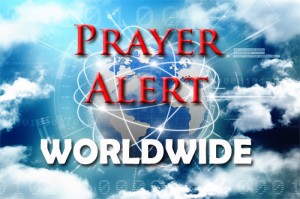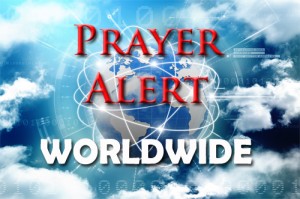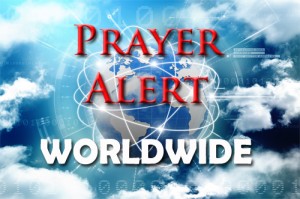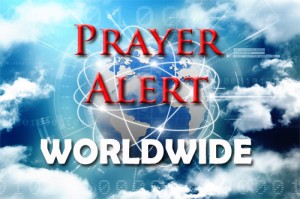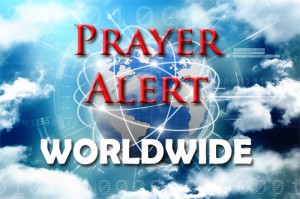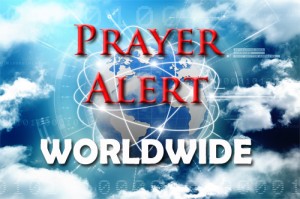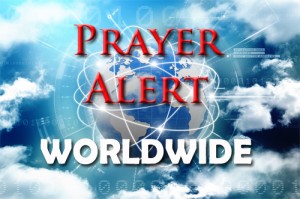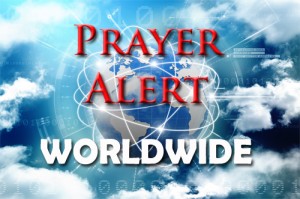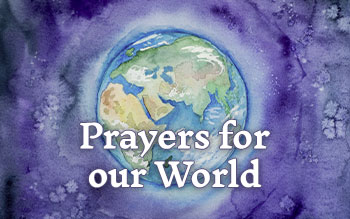Displaying items by tag: Syria
Syria: a move towards future stability
A civil council, which is expected to rule Raqqa once IS is dislodged from the Syrian city, pardoned 83 of the jihadist group's low-ranking militants recently as a goodwill gesture designed to promote stability. They were transported to the Raqqa city HQ, in an amnesty coinciding with Eid-ul-Fitr. The US-backed Syrian Democratic Forces predict that Raqqa could fall within months. ‘We would never release senior Daesh officials or anyone who has blood on their hands’, senior council member Omar Aloush told Reuters. ‘We are giving these men a second chance.’ Abdel Rahman Kalas, 43, worked in the IS department that imposed taxes on citizens. ‘I have seven children’, he said, as former militants walked away after the ceremony to face the uncertainty that hangs over the city. ‘I had no choice but to cooperate. They paid me $115 a month.’
Syria: US downs Syrian plane and drone
A US fighter jet has blown up a pro-Syrian regime drone, just two days after the US brought down its first Syrian air force warplane. No matter how much Mr Trump personally hankers after better relations with the Russians, the downing of the Russian-made SU-22 on Sunday night has effectively killed any prospect of Washington and Moscow enjoying a new era of detente. The Russian response has been to threaten any coalition aircraft which enters airspace where its forces operate. Meanwhile, an armed Russian warplane flew within five feet of a US reconnaissance aircraft over the Baltic Sea in what US officials said was a ‘provocative and unsafe’ way. Tensions between the two powers were already running high after a bipartisan group of US Senators last week voted overwhelmingly to pass a bill that expands financial sanctions in retaliation for Russia’s interference in last year’s presidential contest, as well as Moscow’s illegal annexation of Crimea in 2014.
Syria: Christians return to rebuild ancient town
In the Syrian war, the town of Maaloula - one of the few places where people still speak a dialect of Jesus' language, Aramaic - was occupied by Islamist al-Nusra militants. Almost all of the town's 3,000 inhabitants, mostly Christians, had to flee from their homes. Thankfully, the town has now been liberated. Many homes were damaged in the fighting, and every church was burned or vandalised, yet some believers have now returned. With support from local churches and partners of Open Doors, families are beginning to rebuild their homes. Four have already been reoccupied, and in the coming months they expect the other houses to be finished too. Gradually, the infrastructure in Maaloula is also being restored. A bakery, pharmacy and bookshop have opened their doors again.
Syria: the diplomacy dilemma
Russia has invested politically and militarily into Syria; many believe their primary concern is less President Assad than the power and prestige of maintaining their position. Any plan to move Moscow from this stance needs to involve a face-saving mechanism that Putin could package as win-win internationally, and in Russia’s best interest domestically. Many strongly believe that if Assad were to go, the Syrian Christians would be history, and like Iraq and Libya before, Syria would descend into jihadist chaos. The BBC’s correspondent Robert Pigott said, ‘If he goes, IS and Al-Nusra will be fighting it out on the streets of Damascus’. Also, Assad is the leader of the Alawites. The Alawites are Shi’ite Muslims centred in Syria who have older beliefs that predate Islam. Unless the Syrian Alawites themselves make a change in their leadership they will back Assad. Any initiative that omits Syria’s Alawites will be a diplomatic failure and lead to more deaths.
Syria: Chemical attack followed by USA retaliation
Fifty-eight people have died and dozens have suffered in a chemical attack in Syria. Assad denied using any such weapons. Putin insisted Russia was not in the vicinity. Observers in Syria point the finger at it being a Syrian strike. Syria first used chemicals in 2013. It prompted purposeful discussion that came to nothing. Tuesday’s attack provoked President Trump to react within 48 hours - a major shift in America’s foreign policy. On Thursday night the USA launched 59 Tomahawk cruise missiles at the Syrian airbase where the warplanes that carried out the chemical attacks were based. The UK knew in advance of the airstrike but was not involved. Russia knew in advance and were seen moving vehicles out of the area. They are calling the strike a violation of international law. Since the USA gave Russia and the UK warnings that a strike would happen and where it would happen, it was not a surprise military action. Whether it will be interpreted as an outright military act or a political strike, we should indeed pray into this fluid and tense situation.
Middle East: seismic shifts and fresh persecution
The fighting in Syria grows more complex as Turkey aims to interrupt the line of territory held by Kurdish forces along its border and the US works with the Kurds to prevent battle escalation and focus on IS. Pray for this tense situation where Turkish and US goals are in disagreement. Pray also for the third round of peace talks sponsored by Russia and Turkey that began on 14 March. In Iraq, the campaign to retake Mosul from IS progresses despite fierce resistance. Iraqi commanders are hopeful they can overcome IS within six months. Many civilians have been prevented from fleeing by IS, and horrific sites of mass burials have been uncovered in captured areas. Pray for the future for Mosul, for peace-building and reconstruction to be given as much thought as the current military campaign. The two-year conflict in Yemen has killed 7,700 people, including 1,500 children. The fallout is that over 18 million people need food aid.
From Israel to Syria with love
Gush Etzion is a cluster of communities at the centre of the political controversy surrounding Jewish settlements. It supposedly consists only of right-wingers who consider all Arabs to be enemies, but there is a very different side to the community. Once a fortnight, trucks arrive to collect supplies donated by local residents. The supplies are taken north for the Amalia ‘buses of angels’ to distribute to Syrian children across the border. The activity looks like any other charity activity, but the teenagers organising it are Orthodox Jews and the recipients of the boxes are Arab refugees. The teenagers have also contacted Rabbi Shivi Froman, a resident of another Orthodox community and the founder of ‘Syrians on the Fences’ (SoF). SoF has collected over a million shekels to buy equipment for Syrian children, in collaboration with Israel Flying Aid (IFA). Froman’s late father was a leading Israeli voice for peace and reconciliation with the Arabs in the Palestinian Authority.
Is Iran seeking a foothold in Syria?
Israeli prime minister Benjamin Netanyahu and Russian president Vladimir Putin met in Moscow yesterday. Netanyahu opposes what he says are Iran's attempts to establish a permanent military foothold in Syria. He told his cabinet, ‘In the framework of a future peace agreement or without one, Iran is attempting to base itself permanently in Syria - either through a military presence on the ground or a naval presence - and also through a gradual attempt to open a front against Israel on the Golan Heights’. Israel's arch-enemy, has been Syrian president Bashar al-Assad's backer and has provided militia fighters to help him; Russia, also Assad's ally, is seen as holding the balance of power in a deal on Syria's future. Geneva’s UN-led Syria peace talks last Friday ended without a breakthrough.
Syria: army recaptures gas fields
The Syrian Arab Army has been kept busy in the eastern countryside of Homs since they liberated Palmyra, attacking several areas controlled by the IS forces north of the city. Among these areas are the Jazal Mountains, situated 10 km northwest of Palmyra. On Sunday, the Syrian Arab Army’s newly-formed 5th Legion entered the gas fields in this mountain region, liberating the entire site after 24 hours of fierce combat. The army now controls two of the four gas fields that are situated near the Palmyra-Homs highway.
Syria's Civil War Explained
The Syrian civil war is the deadliest conflict the 21st century has witnessed thus far.
- “Five years since the conflict began, more than 450,000 Syrians have been killed in the fighting, more than a million injured and over 12 million Syrians - half the country's prewar population - have been displaced from their homes.
What caused the uprising?
Initially, lack of freedoms and economic woes fuelled resentment of the Syrian government, and public anger was inflamed by the harsh crackdown on protesters. Successful uprisings in Tunisia and Egypt energised and gave hope to Syrian pro-democracy activists. Many Islamist movements were also strongly opposed to the Assads' rule. In 1982, Bashar al-Assad's father, Hafez, ordered a military crackdown on the Muslim Brotherhood in Hama, which killed between 10,000-40,000 people and flattened much of the city…
A severe drought plagued Syria from 2007-10, spurring as many as 1.5 million people to migrate from the countryside into cities, which exacerbated poverty and social unrest. Although the initial protests were mostly non-sectarian, armed conflict led to the emergence of starker sectarian divisions. Minority religious groups tend to support the Assad government, while the overwhelming majority of opposition fighters are Sunni Muslims. Although most Syrians are Sunni Muslims, Syria's security establishment has long been dominated by members of the Alawite sect, of which Assad is a member. The sectarian split is reflected among regional actors' stances as well. The governments of majority-Shia Iran and Iraq support Assad, as does Lebanon-based Hezbollah ; while Sunni-majority states including Turkey, Qatar, Saudi Arabia and others staunchly support the rebels…
The situation today
On November 26, the Syrian army launched a military offensive on Aleppo . In less than a month, Syrian troops, with unfettered Russian air support, were able to recapture 90 percent of the eastern part of Aleppo.
On December 13, the Syrian army claimed that 98 percent of east Aleppo was in the hands of Syrian government forces.
Besides, Aleppo, the Syrian government currently controls the capital, Damascus, parts of southern Syria and Deir Az Zor, much of the area near the Syrian-Lebanese border, and the northwestern coastal region. Rebel groups, ISIL, and Kurdish forces control the rest of the country.
Rebel groups continue to jockey against one another for power, and frequently fight each other. The Free Syrian Army has weakened as the war has progressed, while explicitly Islamist groups, such as the al-Nusra Front, that has pledged allegiance to al-Qaeda , became empowered. Last July, al-Nusra front leader, Abu Mohammed al-Jolani, announced his group's name has also changed to Jabhat Fateh al Sham, or The Front for liberation of al Sham.
In 2013, ISIL emerged in northern and eastern Syria after overrunning large portions of Iraq. The group quickly gained international notoriety for its brutal executions and its energetic use of social media. Meanwhile, Kurdish groups in northern Syria are seeking self-rule in areas under their control. This has alarmed Turkey's government, which fears its large native Kurdish population may grow more restive and demand greater autonomy as a result. Last August, Turkish troops and special forces, backed by the Free Syria Army, launched operation "Euphrates Shield" against ISIL to liberate the strategic Syrian city of Jarablus on the border with Turkey. Euphrates Shield operation is considered to be the first Turkish ground intervention in Syria since the Syrian crisis started in 2011.
The Syrian war is creating profound effects far beyond the country's borders. Lebanon, Turkey, and Jordan are now housing large and growing numbers of Syrian refugees, many of whom have attempted to journey onwards to Europe in search of better conditions. Fighting has occasionally spilled over from Syria into Lebanon, contributing to the country's political polarisation. Several rounds of peace talks have failed to stop the fighting. But with much of the country in ruins , millions of Syrians having fled abroad, and a population deeply traumatised by war, one thing is certain: Rebuilding Syria after the war ends will be a lengthy, extremely difficult process.”
Please keep Syria and this ongoing conflict in your prayers. Let’s pray for His peace to come soon after seven years of fruitless fighting that has wrought so much destruction on this land and its people.
